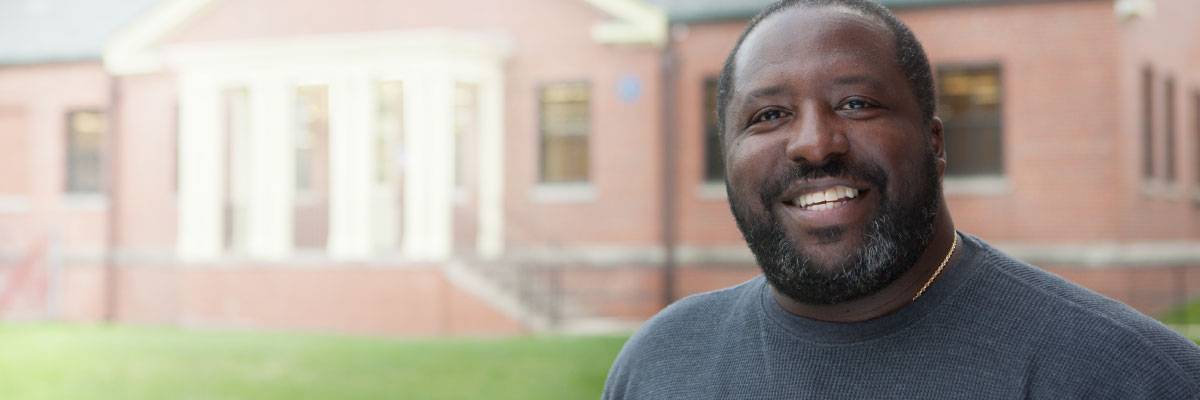If you are homeless, chances are you won’t be getting regular medical care. To schedule or get to an appointment, fill a prescription, and comply with prescribed treatments depend on regular access to a phone, a predictable schedule, transportation, a place to store medicine, and food to take it with.
In 2010, the Lake County Coalition for the Homeless, a consortium of 32 community organizations, approached HFNLC for funding to pilot a medical advocates program to assist clients with the logistics of both accessing primary care and following through with treatment.
The program was an immediate hit. “You have clients waiting for you in the parking lot, requesting services for medical issues,” says advocate Ron Bowles, one of two based at PADS’ Assessment Center in North Chicago. “From then on, you are basically just running, going from client to client and trying to answer as many questions as you possibly can within the time that you have.”
During the “slow” months of summer, advocate caseloads typically include 30 to 35 people. When colder weather hits, that number jumps to more than 100. The coalition estimates that in 2013, medical advocates will serve approximately 430 individuals, giving priority to those with acute and chronic health conditions, chief among them hypertension, psychiatric disorders, and diabetes.
Working from referrals, the advocates spend the bulk of their time scheduling and rescheduling medical, psychiatric, and dental appointments; following up with clients to make sure they understand and complete their treatments; dropping off and picking up prescriptions; and assisting with transportation to and from appointments. To ensure coordination with other organizations, advocates track each client, referral, and record of service in a centralized information and case management system hosted by the county.
Providing follow-up to a population that comes and goes is a constant challenge. In spite of the difficulties, using medical advocates to remove the barriers to primary care seems to be improving healthcare outcomes for the homeless and lowering healthcare costs overall. Comparing data to baseline figures kept by PADS before program launch, the coalition estimates the advocates’ work has reduced hospital emergency room visits by 34 percent; hospitalizations by 24 percent, and the need for ambulance services by 41 percent.
